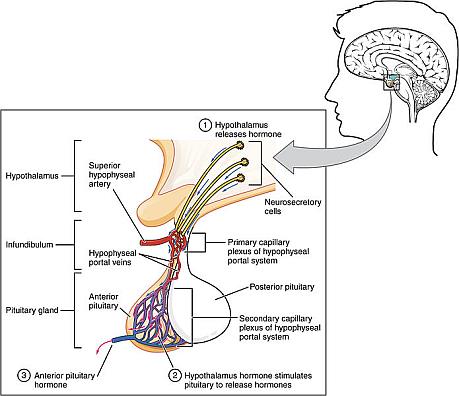Fascinating how whole rafts of doctrine can be swept aside in one or two sentences. "They" attributed consequences to the brain injury itself - and now "they" suggest that the consequences could be due to the post traumatic hypopituitarism. So please, what was the evidence for the original view? Or was it just a guess? One that became the orthodox view? And was never properly questioned?
Except, of course, by those afflicted and their families:
J Neurotrauma. 2014 Oct 17. [Epub ahead of print]
Chronic Endocrinopathies in TBI Disease.
Masel BS, Urban RJ.
Author information
Transitional Learning Center, Galveston, Texas, United States ; bmasel@tlc-galveston.org.
Abstract
To explain the role played by pituitary hormonal deficiencies in the traumatic brain injury (TBI) disease process. Chronic dysfunction of the pituitary axis is seen in approximately 35% of individuals who sustain a moderate-severe TBI. The most common deficiency is that of growth hormone, followed by gonadotropin, cortisol and thyroid. The medical, psychological and psychiatric consequences of untreated hypopituitarism are extensive and can be devastating. Many of the consequences of a chronic symptomatic TBI have in the past been solely attributed to the brain injury per se. Analysis of the signs and symptoms of pituitary axis dysfunction suggests that many of these consequences can be attributed to post traumatic hypopituitarism (PTH). Post traumatic hypopituitarism may well play a significant role in the progressive signs and symptoms that follow a chronic TBI.
KEYWORDS:
ADULT BRAIN INJURY; HYPOPITUITARISM; REHABILITATION
PMID: 25325517 [PubMed - as supplied by publisher]
ncbi.nlm.nih.gov/pubmed/253...
As always, this is just one paper.
Rod
